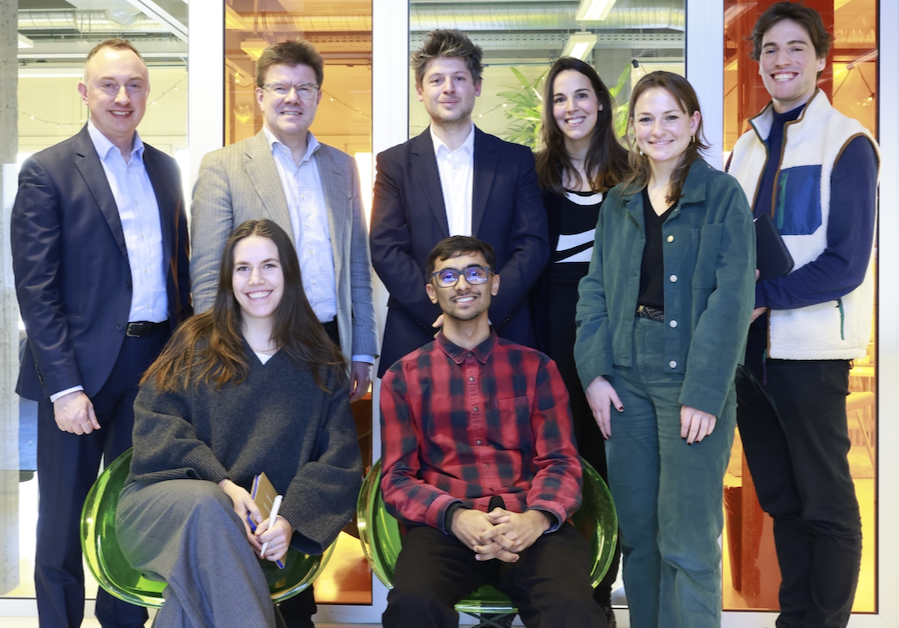Visit of Minister Sven Gatz to Labconsort

Labconsort aims to transition the pharmaceutical and medical industries from linear to circular mode
With the European Climate Law, the EU commits to achieving carbon neutrality by 2050, with Brussels aiming for this goal even by 2030. Labconsort seeks to contribute to this target by transitioning laboratory and medical equipment from a linear to a circular model. “This sector is among the most polluting. In laboratories and pharmaceutical production, a lot of equipment is often unnecessarily discarded or left unused, even though it still has potential for reuse,” explains Labconsort's CEO, Metin Zwart, to the Open Vld Brussels delegation; Sven Gatz, Chloë Van Hoegaerden, and Frederik Ceulemans, during their visit to Labconsort.
Labconsort aims to help companies achieve their sustainability goals and save valuable resources by giving analytical and non-analytical equipment a second life through a circular model. By Repairing, Recycling, and Redistributing (their three R-strategy) used laboratory and production equipment, they strive to reduce environmental impact and cut down CO2 emissions within the pharmaceutical and medical industries.
Studies show that second-hand laboratory equipment can reduce CO2 emissions by 30-90%, depending on age, efficiency, and specific production and transport processes.
Their initial idea of connecting universities for the reuse of materials has now expanded to the private sector. The customer base is growing steadily, indicating a promising future.
However, Labconsort still faces resistance. The concept of second-hand is not yet widely accepted in the pharmaceutical/medical world, stemming from deep-rooted habits and an abundance of budget for new purchases. Companies prefer brand-new analytical equipment, despite the comparable functionality of used devices. Metin Zwart highlights the analogy, “We don’t throw away our cell phones just because our charger is broken, do we?” Sven Gatz underscores the need for regulation at the European level.
Purchasing second-hand not only means less use of resources and lower emissions due to reduced production but also opens the door to significant savings. Up to 70% savings free up budget that can be used for crucial research, an aspect Labconsort considers as critical as the ecological aspect.
Besides redistributing used equipment, Labconsort also offers leasing of material, repair services with specialized freelancers, and utilizes an AI database for energy efficiency.
Their goal is to make the pharmaceutical and medical sectors more sustainable by ensuring that second-hand becomes not the exception, but the norm.
